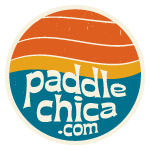Dragon kisses. Butt blisters. Whatever you call them, they are a true pain in the butt. Literally. Nearly everyone gets them, yet no one likes to talk about them. If you have been rotating properly and using an effective leg drive, it is likely that you have experienced blisters on your rear end a few times. You start to feel that pain, at some point the skin rips open, and when you get in the shower you scream like a little girl when the water hits your rear end. Most all of
A few weeks ago, I asked readers about their favorite dragon boat races and festivals in terms of competition, location and venue. Here are the responses I received: 1) In your opinion, what is the best dragon boat race in terms of competition? This question focused on the level of teams that the race attracted. Vancouver’s Rio Tinto Alcan Race (Canada) was hands-down the most popular among those who responded, followed by Toronto’s Great White North Challenge (Canada). There is no doubt that the Canadians provide some good competition! Other races that
People are always asking me about what I eat and what kind of food I encourage my teams to eat on race days. So, I thought I’d write a post about it. First off, let me say that I am not a nutritionist. I use information gathered from other reliable sources and make decisions based on how various foods make me feel after I eat them. For example, a bowl of Heath Bar Crunch ice cream (my favorite!) makes me feel tired and weak. A piece of chicken, brown rice, and
As a former teacher and a current coach, I have been fortunate enough to be a part of the learning process of individuals. Whether it is academic material or athletic movements, learning new things is a difficult endeavor which can be frustrating. When newbies come out to paddle for the first time, it is important for coaches and teammates to remember that for most people paddling involves completely new body movements. We grow up kicking or throwing a ball, running, jumping, etc. Not many of us were lucky enough to grow up with a paddle in
A Rookie’s Guide to The Dragon Boat World Championships in Welland: Wise Words from Veteran Paddlers
If you are a rookie to Team USA, or your own country’s national team, this guide is for you. After all of the preparation, Welland is just about in sight, which means at this point everything you’ve been doing for the last two years will soon come down to a few minutes of racing on dragon boat’s biggest stage. The physical training is tough, but practices have taken care of preparing the body. What about the other parts of World Championships – the parts that nobody tells you about? That’s
As a coach, hands down one of the most difficult things is selecting the race boat. On competitive teams, coaches spend countless hours reviewing data from fitness tests and time trials, as well as video, in order to determine what they consider to be the strongest boat. The coach’s goal is to win while creating a cohesive team that will function as one unit. If you aren’t selected for the race boat, it can be extremely disappointing and frustrating. As a coach, I have been the brunt of such frustrations. I
No one likes to sit on the bench while the rest of the team competes. Everyone wants to be in the race. So, should a racing team only consist of 20 paddlers in order to avoid having paddlers sit out? That doesn’t really make sense. Every team has some paddlers who sit out more often than they compete in races, but does this make them any less of a teammate than the race crew? Definitely not. The role of the reserve paddlers (often called subs or spares) is simply different from the
Have you ever wondered what is it like to train for hours, making sacrifices, pushing yourself to new levels while preparing yourself for the Dragon Boat World Championship? Team USA paddler Bob Mina recounts his experience. Since 2008, a morning of practice starts the night before. I have to pack three bags – one with dry clothes for the drive to work, one with the clothes I’ll change into AT work, and one with my run gear for any mid-day mileage I can fit in. I move out of the
As competitive adults in a competitive sport, we see paddlers of varying talents either develop into top-notch athletes or hamper their own progress. How is that an athlete with mediocre ability can develop into an excellent paddler, yet a paddler with incredible talent can stall their own achievement? First, let’s take a look at why athletes with average talent can do so well in their sport: 1) They work hard. This is worth repeating. They work HARD. Have you ever noticed that when things are simply handed to people, they do not tend to value
I am doing a little research and would love to get my readers’ opinions! I’m sure that you have been to many dragon boat races in your paddling career and I’d love to hear about some of your favorites. Even if you’ve only been to a few, your opinion counts. Take the survey below and let me know what you consider the best dragon boat races in terms of venue, competition and location. It’s just three quick questions. Thanks for helping me out. I appreciate your time. I will post

